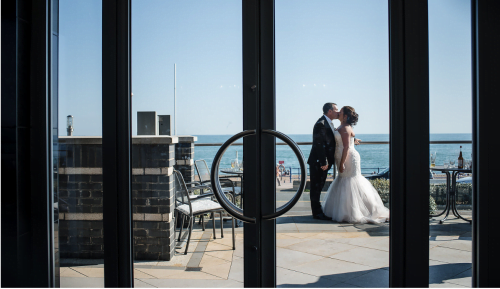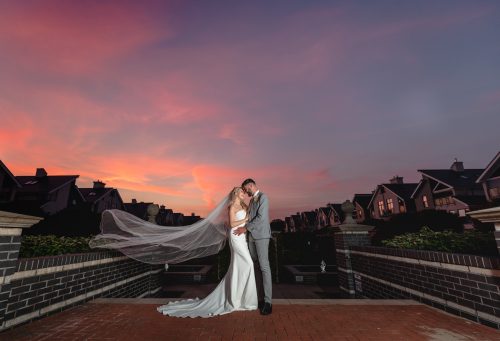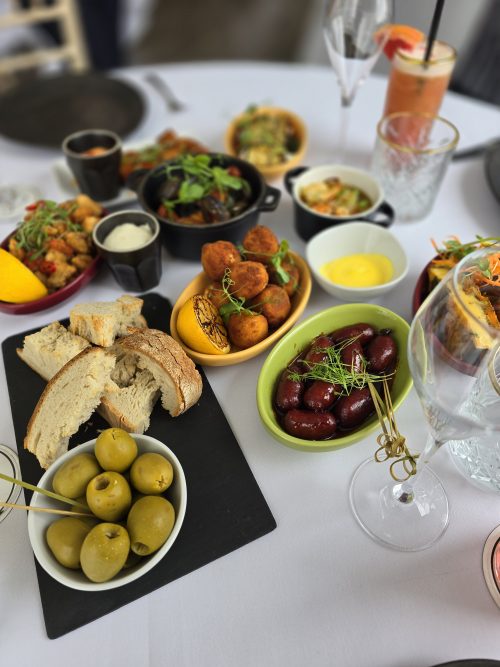Wedding budgeting tips
The average cost of a UK wedding in 2019 was just over £30,000, up from £26,000+ in 2018. It seems the amount couples are willing to spend on their big day is rapidly increasing. But if you’re doing the maths and realising your wedding funds are a lot less – worry not. There are many ways to tie the knot in style without overspending, so check out the below wedding budget tips and enjoy a day to remember.
Planning a wedding on a small budget
Small budget weddings can be beautiful, memorable and enchanting. You don’t need to invest in an Alexander McQueen gown costing over £300,000 like Kate Middleton did when she married Prince William. Nor, do you need a towering wedding cake with multiple tiers that can increase your outgoings by a couple of hundred pounds.
That said, there are things you definitely will want and need, so here are wedding budget tips and hacks that’ll keep your finances straight.
- Know your budget
First things first, sit down and work out exactly how much you have to play with. Look at the wedding fund in your bank account. Then, speak to relatives to see if they’re willing to contribute. While the bride’s family traditionally paid for all, or part, of a wedding, times have changed, and loved ones might not be in a position to support financially. Avoid making assumptions and instead have honest, open conversations. Knowing the figures in advance will make the whole wedding planning process much easier.
Top tip: Once you know your wedding budget, shave a minimum of 10% off the total. Increase this to 15% if you tend to be frivolous with spending. So, if you’ve a budget of £20,000, pretend you’re working with £18,000 only as this will leave some money for emergencies.
- Cover the basics
When it comes to weddings, it’s perfectly normal to get over excited and start thinking about the dress, invites, wedding stationary, the venue and such like. But the basics must be covered first. If you want to say ‘I Do’ at a church before enjoying a ceremony elsewhere, you’ll need to pay specific charges to make your wedding legal. This is, of course, incredibly important and shouldn’t be overlooked.
If you want to get married in your own parish and both live there, the cost is £505. If you want to marry somewhere else, the cost will be £550. This is the basic fee. Extras such as the cost of a choir, organist, bell ringers, verger and so on are not included. The church can provide you with an immediate quote, so you understand the charges.
- Look for a suitable venue
There are many wonderful places through the UK to hold a wedding ceremony or reception. Wedding venues in Kent, for instance, such as the Hythe Imperial offer a wide array of wedding packages that can be tailored to suit your needs. From a red-carpet arrival and welcome drinks to a mouth-watering, three-course wedding breakfast and private use of beautiful hotel rooms, there’s plenty to enjoy – but you’ve got to get the figures right. The wedding venue plus catering is likely to be one of the biggest overall expenses – especially if you marry in a church first – so it’s important to look for places within your budget.
Not only that, but you can easily locate wedding venues that offer everything under one roof, meaning the service and reception all take place at the same location. This not only makes things easier for guests, but can also help you save money. And, when such venues also provide catering, decorations, entertainment and accommodation, you can rest assured a complete wedding package for one price.
Top tip: Divide your entire wedding budget in half. This figure will give you a rough idea of how much you should spend on venue hire including food, cocktail hour, late night snacks, wine and all other drinks.
- Think about how many people to invite
When looking for a wedding venue, it’s also necessary to think about how many people you want to invite as this will affect the overall costs. If you’re on a budget, it might be more suitable to only invite close friends and relatives to the wedding breakfast to save money. You could always invite guests from your wider circle to the evening reception. This will make them feel included without forcing you over budget. Of course, the politics of arranging a wedding can kick in here, but with only so much to spend, you must be careful.
Top tip: To work out your ‘cost per head’ take the amount you have for your wedding venue and divide it by the number of people you want to invite. As many venues provide a cost per head figure, having this number will help you find somewhere that suits your budget. If you can afford £150 per head, for instance, venues charging £200 per head might be out of the question. Negotiate where possible, but always remain realistic.
- Get married off-peak
The most popular time to get married is between late spring and early autumn with summer being an incredibly busy time for wedding venues. As a result, prices can soar. Saturday is also the most popular day, so you might want to avoid Saturday weddings in August, for example. Wedding venues can also be more costly around Valentine’s Day and Christmas, leaving January, March, October and November as off-peak months.
Most wedding venues will also be cheaper to hire from Monday to Thursday as well as Sundays. This is based on the fact that it might be difficult for people to attend mid-week or before the start of a new week. But, if you arrange your wedding in advance and give people plenty of notice, it’s perfectly possible to break the mould and cut costs.
Top tip: Plan a morning wedding and reception as people tend to require less food and alcohol during the early hours than in the afternoon or evening. A quaint breakfast buffet with soft drinks or mimosas can be more affordable than a full three-course lunch plus an evening disco and buffet.
- Choose pre-loved attire
Brides in the UK spend an average of £1,313 on their wedding dress. This is a considerable amount of money, especially if you’re working with say £5,000 and have already halved that for your wedding venue. Spending over £1,000 on a dress will eat a big part of your remaining budget, but there are ways to solve this problem. Firstly, why not look in new or nearly new stores? You might be surprised at what you find. Secondly, check out second-hand wedding dresses online. Some may not have ever been worn. Others are in immaculate condition and are simply looking for another chance to shine.
Top tip 1: If you find a pre-loved dress online that you like, order it in good time in case it needs alterations. If you’re feeling a little down in the dumps about having to buy second-hand (even if you’ve got yourself an absolute bargain), how about investing in new shoes or accessories? Or, treat yourself to a new dress but cut back on extras like a tiara.
Top tip 2: With regards to what the groom and groomsmen will wear, hiring suits usually works out cheaper than buying the whole set new. Shop around for the best offers.
- Think about the size of your wedding cake
The average amount spent on a wedding cake is £300. But it doesn’t have to cost this much. As a rule, the more layers it has, the more expensive it’ll be. So, think about how much wedding cake you really need in order to avoid overspending. Typically, a six-inch cake will serve 10 people, an 8-inch cake will make 20-24 servings, a 10-inch cake will serve 30-38 and a 12-inch cake will serve between 45-56 people. Realistically, you only need to cater for about 70% of guests as many won’t eat the cake.
Top tip: Seek the talent of friends and relatives. If your aunt can knock up a great cake and loves baking, she might be honoured to make your wedding cake. You won’t know if you don’t ask and could potentially save a fortune.
For beautiful Kent weddings, don’t miss the Hythe Imperial offering divine wedding packages at a great price. With a champagne bar Folkestone and a spot for afternoon tea Hythe, it’s also the perfect spot for hen parties.





